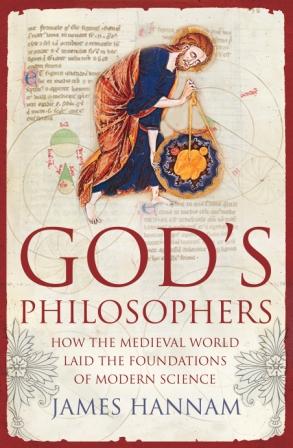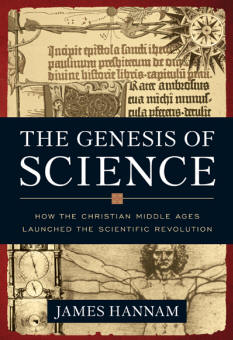
|
If you have enjoyed Bede's Library, you can order my book, The Genesis of Science: How the Christian Middle Ages Launched the Scientific Revolution (US) from Amazon.com or God's Philosophers: How the Medieval World Laid the Foundations of Modern Science (UK) from Amazon.co.uk. |
|
For my latest thoughts on science, politics, religion and history, read Quodlibeta
|
![]()
![]()
![]()
![]()
Is it reasonable to believe in a god?
![]()
Bede's negative rebuttal
Firstly, I would like to thank Cygnus both for taking part in the debate and the quality of his positive construction. I am also very grateful to the moderators for agreeing to mark the debate. They may be interested to hear that my usual bribery rates are available for this transaction.
Cygnus made three points which were helpfully summarised at the end of his post. He claims that science has replaced gods as an explanation in the past and so we should expect the same to occur in the future until there is nothing left to be explained by god. I have two problems with this. Firstly, the idea that a deity created the universe but that natural laws accessible to reason govern its workings goes back two and a half thousand years to Plato and further. Far from science gradually invading supernatural turf we find, among the educated at least, that the idea of a creator outside the universe has been a remarkably consistent aspect of theological thought. In ancient Greece, Medieval Europe and through to the modern West any god was always outside the cosmos which itself is defined as the area that science can investigate. We should not let the excesses of modern creationism or the ignorance of ancient people blind us to the fact that a creator deity has been a feature of rational thought pretty much since it started on the Aegean coast all those years ago.
My second problem is that Cygnus seems to be saying that the success of science means it can be expected to answer every single question including why there is a universe. Many scientists would say that their discipline does not extend that far and science will never be able to answer the question for which a deity is now most often invoked - why does the universe exist and why is it so fit for life?
Next, Cygnus gives us a criteria for belief that we can use to test whether or not we are being reasonable. I thought it might be instructive to examine how the FiLCHeRS system would work when faced with something that I hope both of us agree a reasonable person would believe.
It is 1860 and you have just finished reading Mr Darwin's new book, The Origin of Species. As you fill your pipe and gesture for the servant to bring some tea, you consider whether or not you should believe the fascinating new theory you have learnt about. In a sudden fit of anachronism, you decide to judge the theory under six different headings.
Falsifiability:
How could you falsify Mr Darwin's theory? He claims in his book that if an animal or organ was discovered that could not have come about in small steps his theory collapses. But although you can perceive how it might have come about there is no certainty about the development of the eye, ear or wing. Furthermore, in a vision of the future you find that a certain Michael Behe claimed that molecular structures were impossible to form by small steps. Honest biologists have admitted they have no idea how they did so but even that does not falsify the theory, it seems.
Logic:
Mr Darwin's theory says that the fittest organisms will produce the most offspring while defining the fittest as the ability to have the most offspring. This is a tautology and does not seem to have any premises at all. This hardly makes for a valid deductive argument.
Comprehensiveness:
What about other scientific knowledge? Professor Kelvin has recently used the most advanced methods to calculate the age of the Earth at around twenty million years. That is a long time, certainly, but surely not nearly long enough for the processes that Mr Darwin describes. (Historical note: it was the early twentieth century before Rutherford used radioactive dating to push the age of the Earth back to the billions of years. Lord Kelvin was actually in the audience at Rutherford's lecture but thankfully asleep.)
Honesty:
One can hardly doubt Mr Darwin's honesty but Mr Huxley undoubtedly has an anti religious agenda and is happy to use evolution to further it.
Replicability:
The actually process of evolution cannot be observed and the fossil record is far too incomplete to even be able to observe it happening first time around.
Sufficiency:
There is no mechanism for evolution and no way for traits to mutate slightly. There is no known way for an offspring to be different from its parents and no way for any differences there are to be carried through the vast lengths of time Mr Darwin envisages (Mendel, of course, had already done his work on genetics but it would remain unknown for another forty years).
Returning to the present, I do not wish to cast doubt on evolution but simply to show that a pat method of determining the truth should not be relied upon. I could come up with my own six criteria that might see a deity (and evolution) scoring rather better (perhaps Consistency, Explanatory power, Elegance, Consilience, Intelligibility and Internal coherence) and these more closely reflect the way science is actually done. FiLCHeRS is an argument from an authority that I for one have neither heard of nor agree with.
Cygnus' final point about the lack of evidence will be dealt with in my negative construction.
I was slightly disappointed that Cygnus did not ask exactly what being reasonable is. Perhaps we could agree that it is reaching rational conclusions from the evidence at hand. Is believing you have been abducted by aliens a reasonable conclusion from the experiences these people have been through (a well recognised condition) or should they instead believe that they are liars, deluded or crazy? A conclusion can be extremely reasonable without actually being true. Surely, the great Greek astronomer, Ptolemy, was reasonable in declaring the Earth stationary? And if, with no less knowledge of why the universe is here than we have now, Aristotle declared it must have a prime mover and Plato thought a demiurge had created it, who are we to carp? There is a huge difference between calling these geniuses unreasonable and simply disagreeing with them.
Next page of debate
![]()

